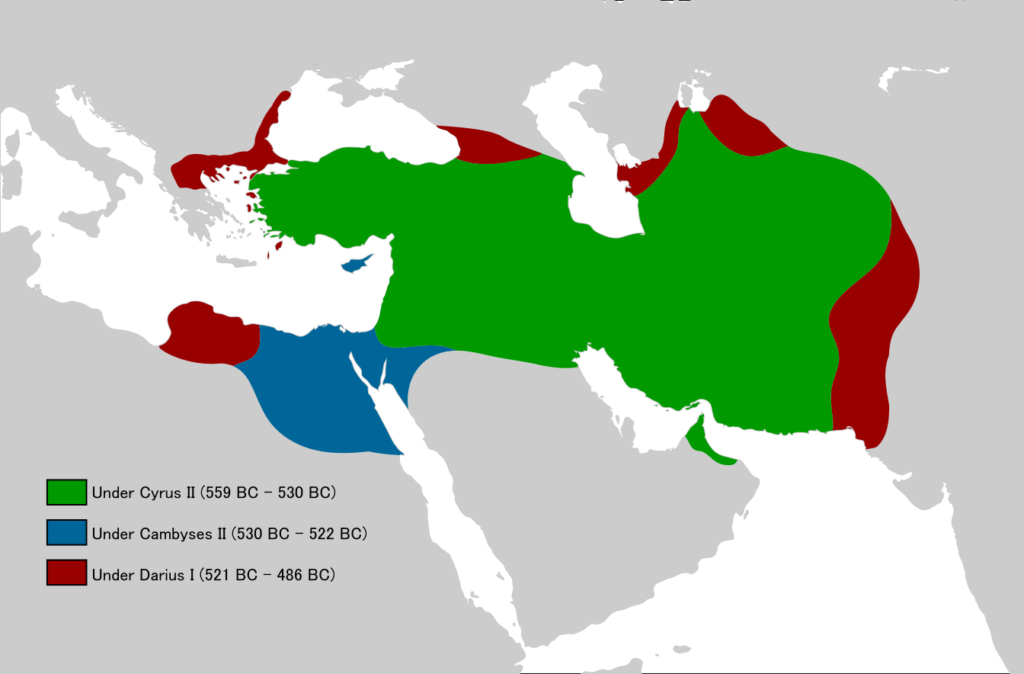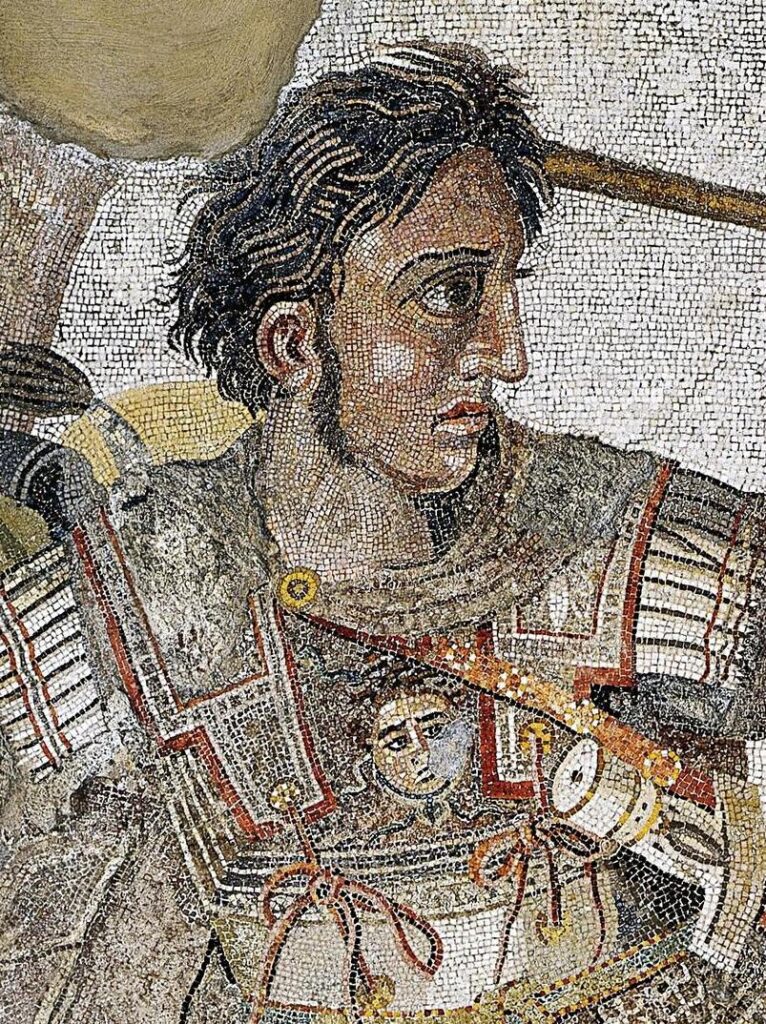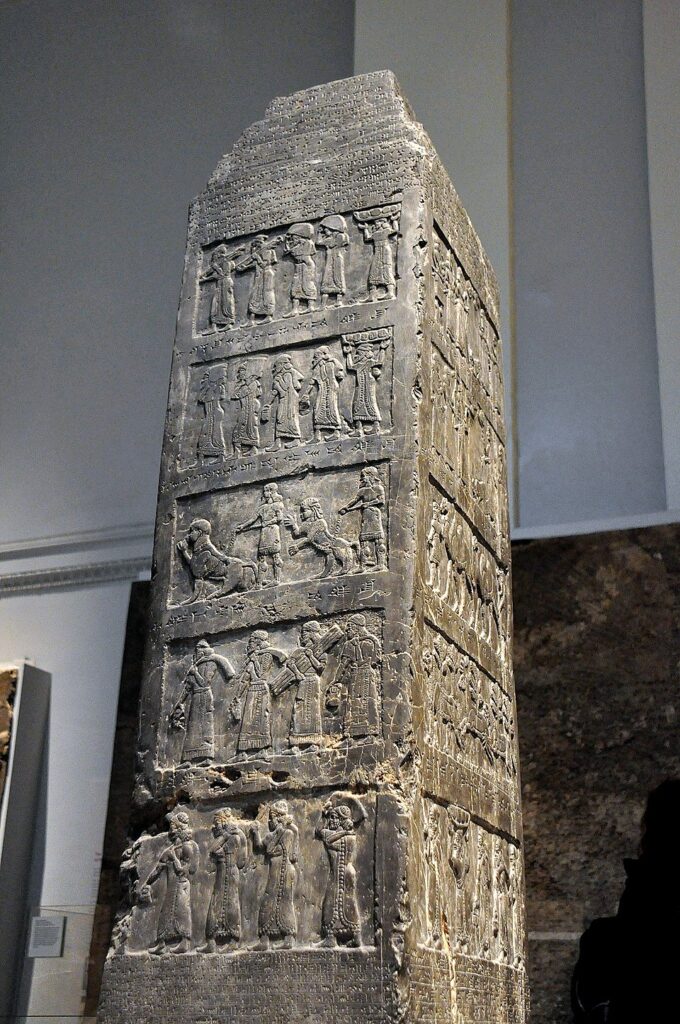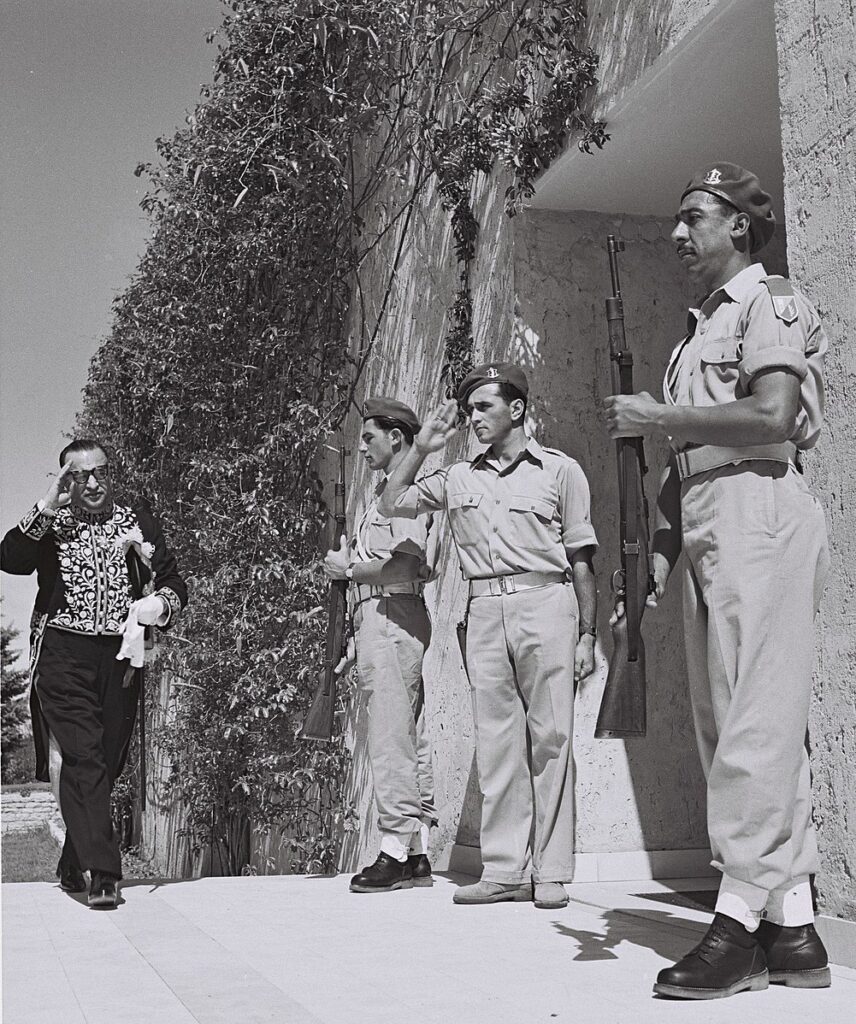
Iran in the Bible: From Persia’s Past to Prophetic Future
By: Karen Engle, ICEJ Managing Editor
As tensions between Iran and Israel dominate today’s headlines, many are wondering: Is Iran in the Bible? Are there end-time prophesies that involve this nation intent on Israel’s destruction? The answer is yes, although it may not be immediately apparent, as Iran is referred to throughout the Bible by its original and ancient name.
Keep reading to learn what that name is and where it appears in Scripture and prophecy, the roles certain rulers of that empire played, if Iran is mentioned in Ezekiel’s Gog and Magog war, Iran’s historical relationship with Israel—and how God is using Iran even today to advance His redemptive plan.
Or click a link below to jump to a topic that interests you most.
The History of Iran in the Bible
Modern-day Iran was home to more than one ancient civilization. It was first known as Elam, and in Jeremiah 49:34–39, the prophet foretold that Elam would be defeated but one day rise again. Indeed, Babylonian King Nebuchadnezzar defeated Elam in 596 BC.
Persian King Cyrus the Great then conquered the region and, just as the prophet Isaiah predicted in Isaiah 21:2, defeated Babylon in 539 BC (during the time of Daniel).
The Persian Empire
Thus, the Persian Empire (also known as the Achaemenid Empire), once one of the largest in the world, is the ancient inhabitance of modern Iran. This powerful empire thrived from 550 BC to 330 BC and, at its zenith, stretched from the eastern Mediterranean Sea to the western border of India, between the Iranian Plateau and the Mesopotamian lowlands.
The Persians ruled the kingdom of Judah for two centuries, during which time Ezra–Nehemiah, Isaiah 40–66, Haggai, Zechariah, Joel, and some Psalms were likely written.

King Cyrus was known for his military dexterity and tolerant administration, which played a pivotal role in God’s plan to return His people to Jerusalem. During Cyrus’ rule from 559 to 530 BC, he allowed those he conquered to retain their customs and religions. Most importantly, he released the Jews from Babylonian captivity and supported the rebuilding of the temple in Jerusalem:
In the first year of Cyrus king of Persia, in order to fulfill the word of the Lord spoken by Jeremiah, the Lord moved the heart of Cyrus king of Persia to make a proclamation throughout his realm and also to put it in writing: “This is what Cyrus king of Persia says: ‘The Lord, the God of heaven, has given me all the kingdoms of the earth and he has appointed me to build a temple for him at Jerusalem in Judah. Any of his people among you may go up, and may the Lord their God be with them.’” (2 Chronicles 36:22–23)
Just as the prophets foretold, though the Israelites were scattered, God protected them in exile and brought them back to the land promised to them centuries before—and used a gentile, Persian king to cause it to happen.

Darius I, who succeeded Cyrus, expanded Persia’s territories and implemented administrative reform (see Ezra; Haggai 1:1, Zechariah 1:2). His son, Xerxes, led unsuccessful invasions of Greece during the Greco-Persian Wars. Persia eventually fell to Greece under Alexander the Great in 330 BC, who adopted many Persian customs and integrated their administrative systems into his rule.1 Persia was then ruled by the Seleucids, the Parthians, the Romans, the Byzantines, and later, in AD 636, the Muslims, until in 1501, the state of Iran was established.
Where Is Iran (Ancient Persia) in the Bible?
Persia has not only played a pivotal role in biblical history but also prophecy, carrying deep spiritual and geopolitical significance that continues to echo into the present.
Genesis
Genesis 10:22 identifies Elam as a son of Shem, marking the Elamites as descendants of Noah through the Semitic line. Elam reappears in Genesis 14:1 with “Kedorlaomer, king of Elam,” who leads a coalition of four kings in battle against five cities in the Jordan Valley. This conflict draws Abraham into the biblical spotlight, as his nephew Lot is taken captive—setting the stage for a bold rescue and Abraham’s rise as a warrior of faith. Again, the Elamites lived in what today is southwestern Iran.

Ezra and Nehemiah
The books of Ezra and Nehemiah describe how Persian King Artaxerxes commissions them—Ezra to establish Torah among the returning exiles and Nehemiah to rebuild Jerusalem (Ezra 7:11–26; Nehemiah 2:1–6).
Esther
The book of Esther offers a dramatic glimpse into palace intrigue and an attempted genocide of God’s people Israel, the Jewish people, within the Persian Empire—only to be met with divine deliverance, echoing patterns we see today.
Isaiah
Isaiah lists Elam among the nations from which God will gather His scattered people in the end times: “On that day that the Lord will again recover with His hand the second time the remnant of His people who will remain, from Assyria, Egypt, Pathros, Cush, Elam, Shinar, Hamath, And from the islands of the sea” (Isaiah 11:11).
Jeremiah
In Jeremiah 49:34–39, the prophet foretells judgment and hope concerning Elam. God will “break the bow of Elam,” alluding to the Elamites’ famed archery and military strength. Jeremiah then describes their scattering to the “four winds,” symbolizing dispersion. Yet despite this judgment, the passage ends with a promise: God will one day gather and restore Elam: He will extend mercy even in discipline.
Ezekiel
Persia’s prophetic role is especially evident in Ezekiel 38–39, where it is listed among the nations allied with Gog in a prophesied end-times assault on Israel. Many scholars interpret this as a future geopolitical coalition, with modern nations often charted to the ancient names listed alongside Persia.
Daniel
Persia is mentioned throughout the book of Daniel. In Daniel 5:28, the famous “writing on the wall” foretells that the Medes and Persians would overpower Babylon (then ruled by Belshazzar). Daniel 6 refers to “the law of the Medes and Persians.”
Daniel also describes a dream (or vision) that he had in approximately 553 BC2 in Daniel 7. In the dream he sees a chaotic sea that represents nations of the world in chaos. Out of this sea come four “beasts,” symbolizing four gentile empires. The second beast—a bear—represents the Medo-Persian Empire. (Media was a dominant kingdom before Persia. For a time, the Medes and the Persians were one united great power, Medo-Persia,3 but eventually, Persia ruled Media).
The bear had three ribs in his mouth that author and Bible teacher Renald Showers says likely represents Libya, Babylon, and Egypt,4 indicating the “bear” would rule over those nations. Notably, under the Persian King Cyrus, God used the Medo-Persian Empire to defeat Babylon and end the Jews’ 70-year exile.
Daniel 8 records Daniel’s vision of a ram and a goat, symbolizing the Persian Empire’s rise and eventual fall, offering more detail than the earlier dream.
Later visions in Daniel 10 and 11—during Cyrus’ reign—depict a heavenly battle and mention future Persian kings (10:13, 20; 11:2).
Acts
In the New Testament, people from Iran are mentioned indirectly in Acts 2:9. It says that “Parthians, Medes, and Elamites” were in Jerusalem on the feast of Shavuot (Pentecost). These were Jewish groups living in what was once ancient Persia (now modern-day Iran) who were in Jerusalem for Shavuot and thus witnessed the beginning of the Christian church. Jews had been living in the area of ancient Iran for hundreds of years by the time of Acts 2. These were well-established communities represented in Jerusalem for the holiday of Shavuot.
Altogether, these Scriptures underscore Persia’s (Iran’s) significant and continuing role in God’s unfolding redemptive plan—past, present, and future.
Ezekiel, Iran, and the Gog and Magog War
The second half of Ezekiel reveals that despite Israel’s disobedience, God has a bright future for His people beyond their exile—a future rooted in renewed “circumcised” hearts and a restored relationship with Him. At the same time, Ezekiel addresses the persistent evil among the surrounding nations, declaring that God will ultimately confront and judge all wickedness, both within Israel and beyond.
Gog and Magog
In Ezekiel’s vision, he sees an alliance of seven nations from the north, south, east, and west that come against Israel in a major end times war. This war is called Gog and Magog—Gog (a ruler, or some scholars say an “archetype” of human rebellion against God) from the land of Magog (often understood to be Russia). In Ezekiel 38:5, Persia (“Paras”) is listed as one of the countries that joins Magog in attacking Israel. Other nations in this coalition against Israel include Meshech, Tubal, Gomer, and Beth-Togarmah (modern-day Turkey), as well as Cush (Ethiopia) and Put (Libya). Ezekiel indicates these nations will attack when Israel is living in peace (verse 11).
The nations in this alliance will believe they’re about to win, but God will show His supremacy and safeguard Israel by stepping in and prohibiting this massive invasion. The attacking armies will be destroyed on the mountains of Israel. God says in Ezekiel 39:4–5 that the bodies of Israel’s attackers will be left for ravenous birds and wild animals to eat.
Although Ezekiel says in 38:3 that God is against Gog and his allies, the prophet also says God Himself orchestrates the events:
I will turn you [the nations against Israel] around, put hooks into your jaws, and lead you out, with all your army, horses, and horsemen, all splendidly clothed, a great company with bucklers and shields, all of them handling swords.
Bible Fiber author and American Christian Leaders for Israel (ACLI) Coordinator Shelley Neese writes that God will guide the enemy into battle to fulfill His sovereign purpose: “The seeming contradiction highlights the complex relationship between human agency, divine sovereignty, and God’s overarching plan of redemption.” Neese continues:
God can use even hostile, wicked powers to accomplish his purposes, while still holding them accountable for their sinful motives and actions. [In Ezekiel’s vision], Gog is acting out of his own arrogance and desire for plunder (38:10–12), yet God is the one who is summoning and empowering him.
Ultimately, the purpose of this divine control over Gog’s attack is to show God’s sovereignty and to bring about Israel’s deliverance. God would bring Gog up against Israel to reveal his holiness and power to the nations. The attack itself becomes the occasion for God to decisively intervene and crush Israel’s enemies.
In 586 BCE, God used Babylon as his agent of destruction to deliver punishment to a rebellious Judah. Now, however, God instigates the attack of Gog and his hordes, but He [will] obliterate them and protect Israel.5
In the end, according to Ezekiel, Gog’s alliance will be destroyed.
Did We Just Witness the Gog-Magog War?
Because the nations mentioned in Ezekiel 38–39 closely resemble key players involved in Israel’s recent 12-day war with Iran, many Christians have been questioning if it was the beginning of the prophesied Gog and Magog war. The alliances, hostilities, and geopolitical movements involving nations like Iran and Russia caused many to pay close attention.
Several things indicate not yet—although, as God has done throughout Scripture, He is likely setting the stage.
Regardless of where we are at on God’s calendar, one thing is for sure: God is moving all things forward to the fulfillment of His Word—toward the day when He says He will “make My holy name known in the midst of My people Israel,” and the nations will “know that I am the Lord” (Ezekiel 39:7).
The History of Iran and Israel
Though modern tension may seem to indicate Iran and Israel are longtime enemies, history tells a different, multifaceted story—one in which Persia was, at times, a noteworthy ally to the Jewish people.
One key example already mentioned is the rise of the Persian Empire under Cyrus, which marked the end of the Israelites’ Babylonian exile. The Jewish people saw Cyrus as a righteous king and divinely appointed instrument of liberation. He not only overthrew Babylon—the empire that had destroyed their beloved First Temple and exiled their people—but he also supported their return to their promised land and the rebuilding of their temple in Jerusalem.
Cyrus’ role was so significant the prophet Isaiah referred to him as God’s anointed:
Thus says the Lord to His anointed, to Cyrus, whose right hand I have held—to subdue nations before him and loose the armor of kings, to open before him the double doors, so that the gates will not be shut. (Isaiah 45:1)

Yet biblical history also reveals that not all Persians were friendly toward the Jewish people—one Persian man in the Bible proved especially hostile. We see this in the book of Esther in Haman’s plot to annihilate the Jews under Persian King Ahasuerus that nearly succeeded—an event commemorated in the festival of Purim.
And even though Iran was one of the first countries in the Middle East to recognize Israel after its founding in 1948 (second to Turkey), Iran’s diplomatic ties with Israel ended in 1979, coinciding with the Iranian revolution. The revolution ended with the Islamic Republic of Iran, headed by Ayatollah Khomeini, taking power and ending Iran’s historical monarchy. Relations between the Iranian regime and the State of Israel have been hostile ever since. Despite this, in general, the Iranian people have maintained a more favorable view of Israel.
Lessons for Today: Understanding Iran’s Place in God’s Plan
God can use any nation—regardless of whether it aligns with the God of Abraham, Isaac, and Jacob—to accomplish His purposes.
We see this throughout history, as nations like ancient Persia (modern-day Iran) as mentioned in the Bible have played key roles in fulfilling God’s covenant promises to Israel and the world. That same divine pattern continues today. God’s kingdom is not constricted by borders, governments, or earthly powers—it stands above them all.
As Christians, we must study Scripture carefully and watch current events with sharp spiritual discernment while approaching prophecy with humility, knowing that God’s ways often surpass our understanding.
Above all, we must intercede for all people impacted by the ongoing war against Iran, Israelis and Iranians alike, while we continue to pray for the peace of Jerusalem (Psalm 122:6).
___
It will take years for Israel to recover from the unprecedented devastation left after missiles launched by Iran and her proxies destroyed whole communities, injured countless Israelis, and left thousands homeless.
Help provide practical assistance and comfort to a traumatized nation.
Related Articles
Warning Christians about Antisemitism
Does the House Bill Opposing Antisemitism Outlaw Parts of the New Testament?
The Big Lie: Who Is Really Committing Genocide?


